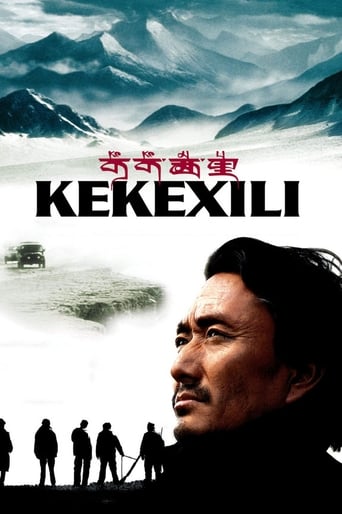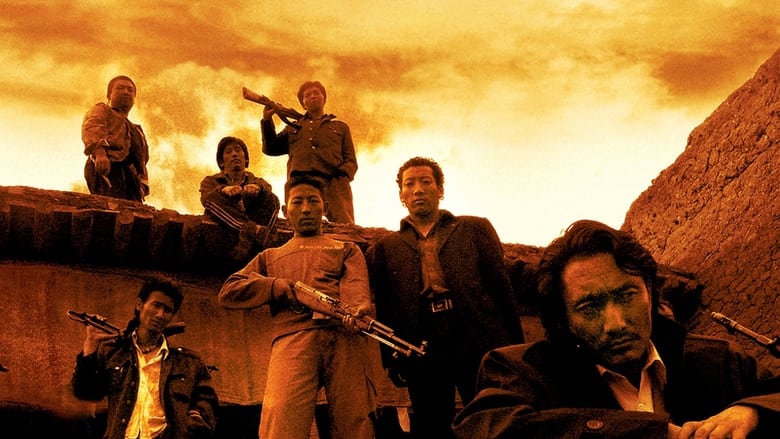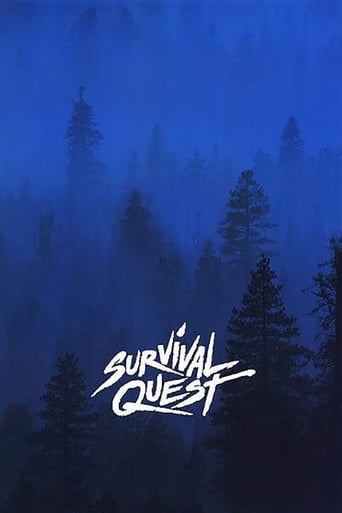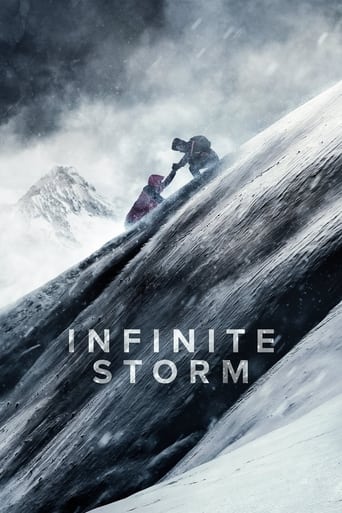

Mountain Patrol (2004)
A moving true story about volunteers protecting antelope against poachers in the severe mountains of Tibet.
Watch Trailer
Cast


Similar titles
Reviews
'Kekexili' was completely different from what I expected. Well, honestly speaking, I didn't know what to expect so my expectation was built up from the Chinese movies I'd already seen and looking at the poster, I thought it was an action movie...but i was pleasantly surprised.This is one of the few movies today that show how simple film-making stands out. Technically speaking, special effects weren't overdone, background score was kept to a minimum, no unnecessary subplot and it sticks to the point.To sum up the plot, 'Kekexili' is about a group of patrols who are in search of poachers. We are briefly introduced into the lives of the penniless patrols, how passionate they are about protecting the endangered antelopes, their selfless deeds and sacrifice (yes, even their lives) and their strength and courage.Chuan Lu's direction is outstanding and he remarkably tells us this sensitive story. The actors breathe into their characters, making you forget that they are actors. Cinematography is fantastic and we also get the feel that the climate (snow, wind etc), the haunting mountains and the city are characters themselves.Being an animal lover myself, I was very moved by 'Kekexili' as a felt for all the characters and their passion and courage really touched me. However, I wouldn't say this is only restricted to animal lovers because 'Kekexili's about selflessly fighting with courage, honour and passion (without giving up) for something you believe in because the effort will not go in vain.
Unique perspectives chronicling the inspiring and true stories of the Tibetan vigilante group who forged their own way of life hunting poachers in the Chinese highlands, one of the most remote, harshest environments in the world. These modern day crusaders had absolutely no sponsorship, no pay, no nothing, and yet would risk everything, time and time again to potentially allow their sacred antelope that much longer time on earth before the mass killings drive this animal into complete extinction. Thanks to the real life attention this earnest movement eventually got, the mountain patrol was able to keep this holy animal from not only becoming extinct, although it did once come dangerously close, but created an environment that eventually saw the animals thriving again. At the center, the film articulates the fear one must associate with at the onset of complete desolation, being totally at the mercy of mother nature's fury in a land where no man can touch. These scenes that document the Mountain Patrol in their epic struggle to catch the poachers are hauntingly effective in their portrayal of the vast open space and hopelessness that occurs after initial boundaries are exceeded; you literally feel like you will be stuck out in the middle of nowhere, waiting to die along with the characters in this film. While in no ways matching the emotional impact of the absolute horror of those abandonment sequences, the whole movie does substantially, and gorgeously render the patrol's entire quest to seek out, once and for all, the main mass murderer of these beautiful beasts, which guides us along through the perspective of an incoming Chinese reporter who is taxed with researching and documenting the lifestyle of this truly extraordinary patrol. While the authentic Tibetan perspectives complement the original story and action, by far the movie's greatest asset is it's truly terrifying portrayal of the fragility of man in overwhelming environmental situations, rendering the otherwise average aspects of the film far more profound.
Here is a film with serious technical and narrative flaws that can easily be forgiven because the movie gives us a wondrous gaze into a stupendous, exotic world, stretching far beyond what we have known or seen before.This is a docudrama based on facts about people who live on a Tibetan plain four miles high which shelters Tibetan antelope, a species that had been threatened with extinction in recent years because of aggressive poaching to harvest highly prized pelts. Poaching became a serious problem here in about 1985. After years of witnessing declining herds, the native people in the region in 1993 took matters into their own hands, forming their own mountain patrol to interdict poaching.The patrol served this goal admirably for a few short years, until 1996, when the increasing hardships of sustaining these efforts coincided with a government decision to declare the plain a wildlife preserve. The patrol was disbanded and, since then, the numbers of antelope have gradually increased, up to 30,000 or more at the time this film was made.The story is a dramatic reenactment of events presumably typical of the mountain patrol period (1993-96). Captain Ritai is about to lead a monthly tour of the region, a caravan of three SUVs transporting about 10 heavily armed men, and, this time, also a journalist, Gayu, from Bejing, who is accepted by the men because his father is Tibetan.Besides the vast flat windswept snowy plain itself, and the massive mountains that border it in the distance, we witness evidence of wholesale slaughtering of antelope (one scene shows the vulture-cleaned carcasses of over 400), armed clashes with poachers, several shooting deaths and injuries, severe cases of pulmonary edema from exertion during chases, and a death when quicksand entraps one of Ritai's men.The story, which begins strongly enough with the shooting of a patrol member by poachers, gradually loses the traction of credibility as Ritai seems to abandon any semblance of good judgment, pursuing the leaders of the poacher gang even as his supplies of food and fuel dwindle to the danger point, and attrition of his team from illness and injury mounts. So the story goes, the journalist Gayu was the only survivor of this particular patrol, and his subsequent stories published in the nation's capital were influential in bringing about government action to establish the preserve.Anyone with a thirst for knowing more about extraordinary and inaccessible cultures should rush to see this film, flawed though it is. You will see the reverence for life of these people, who take the time even to pile up hundreds of antelope carcasses to burn in a funeral pyre. You see the tender manner in which these courageous men embrace, knowing that the rigors of their mission may mean death before another meeting. You enter a remote brothel of the sort established in Tibet only recently as a byproduct of Chinese occupation. You discover that the men must pay dearly in cash to obtain emergency medical aid for patrol members who are ill. And there's more.Kekexili, by the way, means beautiful mountains and girls, we and the journalist Gayu are told. My grade: B 6/10.
*CONTAINS SPOILERS* this is a great movie unbiased in its accounts of its characters. also one of the earlier comments was that the movies ending was bad script saying that why would the captain go up to poachers armed with a single rifle, knowing that these poachers have killed one of his men earlier. the war between the poachers and the mountain patrol have been raging for years. the captain at the end mentioned "i have been chasing you for 3 years". basically if he didn't go up to them at the end of the movie, he knew he would of never have the same chance of catching them again. so disregarding his own life and safety, he rather capture them and risk his life, then to let them go and wait countless years before another opportunity. I'm guessing its more of a pride/symbolic representation in the script itself.








